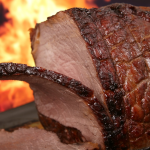As the days become shorter and colder, our thoughts turn to the holidays, a time for baking and sharing homemade treats. Cookies and bars, peppermint bark, and gingerbread houses are all delightful to eat cooked and to “test” before cooking as raw batter. Don’t lick that spoon! Recent outbreaks from raw and uncooked flour products should cause us to reexamine the safety of these ingredients.
Food & Nutrition
Ants – with their wise farming practices and efficient navigation techniques – could inspire solutions for some human problems. From The Conversation, by Scott Solomon, Associate Teaching Professor of Ecology and Evolutionary Biology, Rice University
Due to consumer concerns about the impact of commercial animal production on climate change, sustainable development, and animal welfare, biotech companies are racing to produce meat outside the realm of animal husbandry. Cultured meat (CM), produced artificially in a bioreactor for human or pet consumption, is both the new commercial food frontier and the darling of venture capitalists. Can biotech companies deliver as promised, or are they blowing smoke at their investors and misleading the public?
The New York Times has again attacked an upstanding scientist based on claims made by duplicitous activist groups. This episode illustrates why the public's trust in media is plummeting.
Recent headlines have suggested that air pollution may contribute to growing obesity rates. It's a speculative hypothesis based on bad science.
Eating dairy products results in increased levels of LDL cholesterol (the "bad " kind) which in turn is felt to “fuel” cardiovascular disease – hence the recommendation to pursue a low-fat diet. A new study considers the important question of whether milk and cheese shorten your life.
While urban dwellers' thoughts turn to pumpkin spice lattes, many in our rural communities begin to plan traditional fall hunts. In the United States, game meats are not required to be inspected by a state or federal agency when the hunters consume the meat. In most states, wild game species that may be legally hunted may be harvested only for personal consumption. With no third-party oversight, hunters and trappers must take personal responsibility in handling, processing, storing, and transporting game meats to guarantee wholesomeness and safety.
This Halloween, don't be fooled into thinking that your choice of candy will help destroy or save the planet. Environmentalists and reporters will tell you otherwise. They're mistaken.
I recently appeared on "Dr. Phil" to discuss the fat-acceptance movement—a dangerous, misnamed "social justice" cause that needs to die an abrupt death. Let's break down the debate that ensued.
Many activists and reporters claim we should eat little or no meat to prevent climate change. But instead of presenting arguments, proponents of this radical proposal seek to disqualify their critics with personal attacks.
What does the word "healthy" mean to you? Do you consider yourself a healthy eater? The Food and Drug Administration (FDA) is updating the definition as a claim on food labeling. Will it amount to a hill of beans?
The Non-GMO Project claims that drought-tolerant crops won't help "feed the world" as climate change threatens crop yields. The evidence says otherwise.











